Generation gap can be a hindrance in the workplace, but not for Chip Conley. Chip is the Founder of Modern Elder Academy and a New York Times bestselling author of many books, including Wisdom at Work: The Making of a Modern Elder, a book that takes a look at the importance of experience and repurposing your wisdom. He is the hospitality maverick who helped Airbnb’s founders turn their fast-growing tech startup into a global hospitality brand. Today, Dr. Diane Hamilton interviews him about infusing wisdom in the workplace that is swamped with smart and young workers. He also differentiates smarts and wisdom and points out the importance of identifying your mindsets and evolving them over time.
As much we try to understand the intricacies of business, how to scale, and all the different elements of operations, it’s all about the people. If you aren’t taking care of the people, your strategy falls flat. On today’s show, Dr. Diane Hamilton interviews Kim Bohr, the CEO of the Innovare Group and a highly sought after speaker. Believing in the strength of the people component of any venture, Kim shares how we can advance our careers by learning how to take care of the people around us.
We have Chip Conley and Kim Bohr. Chip is a New York Times bestselling author of many books. He’s also the Founder of Modern Elder Academy. Kim Bohr is the CEO of The Innovare Group and also a highly sought after speaker. She’s been featured on many sites. I can’t even list them all. It’s going to be interesting to talk to Kim and Chip.
Listen to the podcast here
Wisdom In The Workplace With Chip Conley
I am here with New York Times bestselling author, Chip Conley. He is the hospitality maverick who helped Airbnb’s founders turn their fast-growing tech startup into a global hospitality brand. His book, Wisdom at Work: The Making of a Modern Elder shares an unexpected journey at midlife, which I’m interested in learning about technology as Airbnb’s head of global hospitality and strategy. He also mentored CEO Brian Chesky. Welcome, Chip.
Thank you, Diane. It’s great to be with you.
This is an interesting background that you have. First of all, before we get to Airbnb, which is fascinating to me, or talking about what you’re doing and everything else, what led you to get to that point in your career. Can you give a little background in your career?

Career Advancement: Oftentimes, leaders take the recognition for their employees, and that causes a tremendous amount of friction.
I grew up in Southern California. I came up to Northern California to go to college and business school. At age 26, I started a boutique hotel company back in the mid-1980s when boutique hotels were getting off the ground in the United States. I called the company Joie de Vivre, which means Joy of Life in French. We created 52 boutique hotels, all of them in the state of California. Each one had its own name and it became the second-largest boutique hotel in the US. I sold the company in 2010 and then I wasn’t sure what was next. That’s when the very young founders of Airbnb came to me and said, “We want to democratize hospitality. We’re a small tech startup and we would love to have you help us become a mainstream hospitality brand globally.”
In your book, it said you didn’t write code or have Uber or Lyft app on your phone and you were twice the age of the average Airbnb employee. How did they come to you and why you?
It’s not that I was the best person to come along, but to their credit, they knew what they didn’t know. A lot of times, young entrepreneurs don’t know that. They don’t know what they don’t know. The hubris of raising money means they have to look like they know it all. What I was impressed by with Brian, who is one of the three Cofounders and CEO was he was a sponge for learning. I quickly realized that he and I were going to have a mutual mentorship relationship. He wanted me to be his mentor because I’d run my own company for many years. I knew a lot about leadership, hospitality strategy and things like that, and maybe even a little bit about emotional intelligence.
The interesting thing was Brian was teaching me something from the very first day. I had no experience in the tech industry. I had never worked with venture capitalists before because my hotel company didn’t need venture capitalists. There were Millennial cultural trends and travel tastes that were new to me. What I appreciated was I was brought in as the mentor, but I was as much the intern as it was the mentor. It’s like the Robert De Niro film with Anne Hathaway. He comes in as a senior intern but he becomes her mentor. I saw the opposite. I came in as the mentor and then also became the intern. It was a beautiful experience because they had read some of my past books. One of my books is called Peak: How Great Companies Get Their Mojo from Maslow. It had caught their eye and they liked the idea of being a culture-driven organization and that’s what that book is about. I did it for four years. I helped them steer the rocket ship, then for the last three years, I have been a strategic advisor and continue to be the in-house mentor to Brian.
What comes to mind is not having to re-learn a bad golf swing almost. If you don’t have the skills in certain areas, sometimes it’s nice to come in with fresh eyes. I interviewed Naveen Jain and he switches industries quite often. He learns from scratch and sometimes it’s better to come without a certain amount of baggage in some respects. What do you think?
There are fresh eyes. One of the interesting things, once I got used to the idea that I could be the dumbest person in the room, which is a hard thing. I didn’t understand some of the things they were saying. Instead of asking them questions about what does that means, which I could do after the meeting to one person as opposed to everybody in the meeting. What my fresh eyes did allow was it helped us to see some of our blind spots as a company. When you look at something new for the first time, there are questions you may have. Airbnb, by the time I joined, was a small company that had been growing quickly. There were a lot of questions I asked that were curious questions.
They started calling me the modern elder in the company. I was like, “Really? I have to be called an elder?” Elder is different than elderly. Elderly is the last 5 to 10 years of your life. Elder is a relative term. It depends upon who you’re surrounded by. In my case, I was a Boomer surrounded by Millennials. I would guess I was the elder, but I was a different kind of elder than the elder of the past. The elder of the past was regarded with reverence, but I was told that they liked me because of my relevance. Relevance forces you as an older person to be as curious as you are wise because you have to understand the context of where you are. I had to understand what the tech business was about before I could start delivering some of the wisdom that I might have. If you start preaching wisdom and don’t have any context for it, people may not get what you’re talking about.
That’s great because it ties into my work with curiosity and what I’ve studied. It’s funny when you say that about being an elder, I can remember being 40 at a job and I was by far the oldest one there. Years later, I’m going, “Do you realize you’re a lot older than I was at that point?” It’s all relative to the situation at the time. They look to you though as you know everything. You were talking about hubris before. Sometimes you don’t know at all. There is a lot of “faking it until you make it” going. What do you think about that?
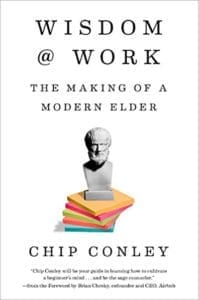
Wisdom at Work: The Making of a Modern Elder
I write a lot about this in my book, Wisdom at Work: The Making of a Modern Elder. Especially in Silicon Valley culture when you put a bunch of smart young people together, there’s a sense that they all want to be the top dog in terms of who’s the smartest. What I started helping them to see was it wasn’t so much who’s the smartest but who’s the wisest. That’s an important piece. The difference between smart and wise often is smart speaks to knowledge, which is all the knowledge in the world is on your iPhone. Being wise means you distilled the knowledge into what’s essential and important. Help people understand that it’s not about being the smartest and having all the facts, it’s about knowing what to do with the facts and knowing what to do with your experience. One of the beauties of wisdom is you build some pattern recognition based upon your experiences and based upon understanding yourself and other humans. Doing it, you are able to build intuition. One of the things I’m trying to study is what’s the difference between wisdom and intuition. I don’t know yet but here you go, we’re talking about curiosity. I want to know what your curious mind wants to know.
I’m curious if you’re intuitive on the Myers-Briggs scale.
I am.
I’m not. I am an ESTJ. Would you remember what yours was?
I’m an ENFP. The person who I look to as the first modern elder I ever saw in my life was a guy named Peter Drucker. He is a famous management theorist. He wrote 40 books on business, management and leadership. Two-thirds of those books were after the age of 65 when he wrote them. What he was pretty famous for is every two years he would study a new subject where he knew nothing about that had nothing to do with his career because he wanted to use curiosity as an elixir for life. For the last few years, I’ve tried to do that same thing. I take a subject, dissect it and get interested in it, then sometimes even write a book about it.
I wrote a book called Emotional Equations trying to understand the fluency of emotions almost in the form of mathematical equations. It was because I had gone through a difficult emotional time in my own life. I was trying to understand my situation. I decided I wanted to understand the nature of emotions a little bit further. The next thing I knew, I was writing a book on it. Being curious in life is a great quality because curiosity opens up possibilities. The beautiful thing about wisdom is it takes all those possibilities that curiosity brings up and it distills it down to what’s important.
That’s well said. It ties into my research with perception as well because we have a strong sense of other people and how to get along and see things from their perspective and not from your own. They were good about knowing what they didn’t know. A lot of people don’t have that same sense and perceptions are a huge thing in the business world. It was fascinating to me to create my assessment about curiosity. It was also equally as fascinating to create the assessment about perception because it ties into IQ, EQ, CQ, for Cultural Quotient and another CQ, Curiosity Quotient. I’m curious about your perception of what we’re going to be seeing and how people perceive somebody who’s elder to everybody else. Is there respect there? Is there fear? What is it when there are these different generations in the workplace?
There are a couple of facts. There’s no doubt we have ages in society. It’s frankly the last socially acceptable-ism that exists. There is ageism out there and in the workplace, especially in places like Silicon Valley, it’s more rampant than in general. In traditional old-line companies, you don’t see ageism a whole lot. It’s a somewhat new phenomenon because of the fact that 40% of Americans have a boss younger than them. By the year 2025, the majority of Americans will have a boss younger than them. What’s happening is power is moving to younger people faster than ever before. We’ve got three things happening at once. We’re going to live longer on average. That’s what’s happening with longevity. The power is moving younger and the world is changing faster.
[bctt tweet=”Relevance forces you as an older person to be as curious as you are wise because you have to understand the context of where you are. ” via=”no”]That combination of three things has got a lot of people in midlife quite confused. The number one thing in terms of how do we address this is we have to make sure that ageism is not rampant, but more importantly, we need to help people who are in midlife or later understand that the way to solve it is not by being cranky or being judgmental about Millennials. The way to solve this is to realize you have built some wisdom over time. You’ve probably built some emotional intelligence. Your IQ doesn’t grow with age but your EQ can. Because your EQ can, you have a value in companies that’s quite substantial. Google was able to prove that the number one variable for successful teams in Google was psychological safety. They were also able to see that psychological safety is often enhanced by having older people on a team because as you get older, you get emotionally moderate. You’re not so ramped up.
Additionally, you tend to get to a place where you’re a little bit less self-absorbed and self-focused. You know how to create the team. You’ve got the EQ skills to do that. Collaboration comes more naturally. If that is true, what we need to do is help the world see that diversity of ages on teams. That includes having a team of just older people without any younger people, that’s not a good idea either, but creating a diversity of ages is helpful to teams and helpful to effectiveness in organizations. There are a lot of studies on this that have proven that. I’m trying to get up there to make sure people know about it.
Beyond that, more and more of what we have to do is help people as they get older to understand what’s their mastery. What did they build? What’s the world-class skill that they have inside them? Often if you don’t see it because you’re too close to it. This is why we created something called the Modern Elder Academy, down in Mexico, an hour North of Cabo San Lucas on a four-acre beachfront. It’s a social enterprise. I don’t want to die doing it. I built the campus and I teach there with a bunch of faculty. The whole premise is that’s the world’s first midlife wisdom school that helps people to mind their mastery, repurpose it in new ways out there in the world, and to change their mindset when it comes to aging.
Are you pushing the buttons on some of these newer interests? Everybody is into mindfulness. Is that part of what people are learning or is that something in addition?
Mindfulness is part of what they’re learning but it’s not the core. It’s a foundational skill that we help teach with meditation, yoga and a few other things. I think the number one skill we help people to see comes from a woman named Carol Dweck from Stanford, the psychologist. It’s about how do you identify your mindsets and evolve them over time, especially those that are not serving you? She has written about the idea of fixed mindsets and growth mindsets. We help people move into a growth mindset in the second half of their life and that’s unusual. Generally speaking, we think of people as they get older is they get more and more fixed in their ways and their thinking. What we’ve been able to prove and show is that people can get more open to new ideas as they age. It’s not impossible and it’s a little bit of training and a little bit of habit-forming.
Habits are a big part of it. Carol’s work is so important to my work. It’s incredible how we can shut ourselves down thinking that extra effort won’t give us any extra benefit if you’ve got a closed mindset and that’s what I know a lot of people do. If we can get to what you’re talking about in the workplace and not just in elders but for everybody, it’s so important for innovation to ask questions and to be inquisitive. Because you said it’s what you do with the facts, but how do you get those facts unless you’re seeing them? A lot of people shut down in the workplace because in the past, you’d hear things like, “Don’t come to me with problems if you don’t have solutions,” or whatever we had leaders say that has shut us down. What do you find that people are mostly shut down by? What my research shows is that fear, the voice in your head, technology, your environments are certain things that shut down curiosity. What has been your experience?
It’s the cultures that are built on blame. One of the other things we teach is something called appreciative inquiry, which is a way of asking questions that opens up possibilities and creates more of a catalyst for people. Many leaders are saying, “We’re losing market share. Who’s to blame?” To find the same answer, you don’t have to ask it that way, which creates a finger-pointing culture. Instead, you could say, “We’re losing market share. What’s our blind spot? What are our competitors doing that we’re not doing? How can we as a team, focused on and getting better at this?” That’s an alternative way of dealing with the challenge.
What shuts people down is when they have a fear of failure, especially if it’s a public failure in a sense that becomes a humiliation. This was part of the reason when I was in my early days in Airbnb, I decided I would intern publicly and mentor privately. When I needed to give some feedback, being the old guy around and having seen a few things in my life, I did see a lot in my early days there where people could be doing things better differently. Brian could be running meetings a little differently rather than commandeering the meeting, having been a CEO for many years. I instead would write down my notes and then when I needed to give feedback to someone, I would do it privately. It’s obvious, but sometimes the most efficient thing is to say it right there at the moment. What I learned quickly is if I’m the guy 25 years older than someone else giving you advice without you asking for it, I sound like a dad, a parent or a preacher. Generally, most younger people drown out listening to parents or preachers. I realized pretty quickly that instead, I needed to find the right time to give that feedback and make sure they’re open to the feedback.
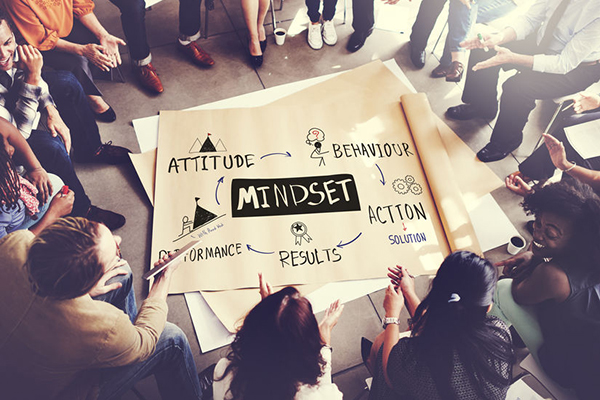
Career Advancement: An important skill you need to have is to knowing how to identify your mindsets and evolve them over time, especially those that are not serving you.
As you’re talking about wanting feedback, I’ve had many people on the show and we talk about that fake it until you make it mentality. We’ve got Elizabeth Holmes, Theranos’ situations and WeWork is having some issues. Some of these places are not coming through as they had anticipated. Are we trying to hold people up to the “You have to be a unicorn or else” mentality? How do you compete in the workplace if it’s so intense like that?
Millennials get beaten up a lot for a lot of different things. Some of the things that they’re blamed for are the same things that Boomers did when they were in their twenties and often in their 30s. That’s one thing to know, but some things are quite specific to the Millennial generation. They’re very tech-savvy, no doubt. The dominant technology I grew up with was television and it didn’t do much for my career. If you grew up with computers, the internet and social media, you have a digital fluency that absolutely helps your career. The thing that’s interesting as well, which speaks to your subject is we talk about Millennials being entitled and impatient. Some of that is coming from the fact that they see these entrepreneurs in their twenties become billionaires, not because they got into family inheritance. They got their billions because they had an idea that went global and became a disruptive force in the economy.
That’s not something we have historically are people in their twenties regularly going out and becoming billionaires. Because of that, there are a lot of young people who have a high expectation of themselves as well as the sense like they don’t want to wait around and they don’t want to pay their dues. There’s a sense of impatience and entitlement. They beat themselves up when they’re not living up to Mark Zuckerberg’s or Brian Chesky’s wealth index. That’s unfortunate and then added to that, social media does tend to have people look good in public. People are forward-facing Facebook pages like, “Everything’s great. I’m going on vacation with the family and we went skydiving.” There’s an element of showing off. All of that has led to a culture where people feel like they have to try to keep up.
It’s interesting because Rich Karlgaard is a friend and he wrote Late Bloomers. Did you read that?
I love the book and I know Rich.
It’s a great book. He touches a lot of how we feel this sense of pressure to be successful. If you haven’t met it by a certain time, we’re hard on ourselves, but a lot of people who have done some great things didn’t necessarily do it that early. You’ve been very successful. You’re in New York Times bestselling author. I’m curious how that impacted your life becoming at that status.
It was a notch on the belt, so to speak. I felt a sense of pride, but after that, other than the fact that it’s in my bio, I don’t think about it much. It certainly did feel good to know. I’ve written five books and three of them are bestsellers, only one is a New York Times bestseller, but the other two are bestsellers nonetheless. I appreciate that because it helps me to know that people are enjoying the book. On a personal level, when I’m thinking about which of the books I had written I like most and which do I feel like I had the legacy, my one book that was a New York Times bestseller is my third or fourth favorite book of the five.
Which is your favorite?
My favorite is Peak. The book that led me to Airbnb because the founders read it. I wrote it many years ago. It was a chronicle bestseller, but that’s as far as it went in terms of the bestsellers list. It still sells exceptionally well. It’s been on in the last few years on 100 best books on success ever written. It was ranked number ten because Eric Schmidt, Tony Hsieh and a bunch of other people say it’s one of their two or three favorite books. It’s got a cult following and I appreciate it because I felt like I was channeling Abraham Maslow, the psychologist because that’s what the book is about, how do you apply Maslow’s hierarchy needs in an organizational context.
[bctt tweet=”Smart speaks to knowledge, while being wise means distilling that knowledge into what’s essential and important. ” via=”no”]Your work is fascinating and you’ve done a lot of things. I was at an event honoring Keith Krach who was the chairman of DocuSign and what he was able to accomplish was amazing. Are you interested in being a CEO or chairman again of a big startup or are you done?
I have six different young founders that I’m mentoring. I love being behind the scenes. I don’t want to be in the chairman role. I don’t want to be in a CEO role. I do have this startup, which is the Modern Elder Academy, but it’s a social enterprise. It’s a small venture. I like being in an adviser role. I don’t want to be back in the saddle having to make the hard decisions. I’d much rather provide advice and then go hang out and surf on the beach.
It’s funny what Keith said when he took the role. He told his wife he’s going to be under the desk in a fetal position at least a few times and that she has to prepare for it. I know it’s a lot of work and what you’ve done has been amazing. A lot of people would love to read your books if they haven’t already and find out more about you. Is there some link or something you’d like to share?
You can go to ChipConley.com and that will show you all my books, my speeches and things like that. Additionally, the website is ModernElderAcademy.com. You’ll see it there. I launched a daily blog called Wisdom Well. It’s where I give a little short blog post like Seth Godin who is a good friend of mine and I went to business school with. My focus is a short 200-word idea of the day on how to cultivate and harvest wisdom in your life.

Career Advancement: You cannot have effective strategy and execution if you don’t have the people component of it. Your process side and your people have to come together.
Thank you so much, Chip. This was a lot of fun. I appreciate having you on the show.
I love it. I look forward to hanging out.
Leaderships And Career Advancement With Kim Bohr
I am here with Kim Bohr who is the CEO of The Innovare Group. She is a certified executive advisor and a sought-after speaker. It’s so nice to have you here, Kim.
Thank you, Diane. I’m excited to be here. I appreciate you having me.
I was looking forward to it. We’re in a group of women authors that get together and share ideas. I’ve seen your name on a few things and we have our love for Ford Saeks in common.
We do. He’s a fabulous man.
He actually designed my website. It’s funny because when I met him, he said, “I need you to get a little bit more content,” because I was going back to redo a whole new career. He went and said, “Get some videos or whatever.” I go out to get myself on an interview because I hadn’t started this show yet. The first guy who interviewed me had a nationally syndicated show and I liked it so much. I say, “How did you get that?” He got me in and a thousand people later, this was just a thousand interviews since he and I had that conversation. Ford goes, “I think you overdid it a little bit.”
You ask and you can receive.
I get to interview cool people like you, which I know you’ve got an international MBA from the University of Denver. I was looking at some of the stuff you have. We have some of that come. I used to run an MBA program and I’m looking at some of the backgrounds on you. You’re a lot of career focus, which is what my interest is. I love the advancement of goals and all the things that you talk about. I want to get into a lot of that, but I want to know how you got to this point. Can you give a little background?
I’ve always been a student of business. I was always intrigued even when I first started out of college and out of my undergrad to understand how business works, what were all the different components that needed to function well to be a robust and healthy organization. Even though I started my career on the sales and marketing side of my business acumen, I then started to want to learn more and keep building and expanding up until when I did my MBA and had a much broader focus. What I’ve found was that at the heart of everything is people. As much as I have this love of understanding the intricacies of business and how to scale and all the different elements of operations, it’s all about the people. If you aren’t taking care of the people, your strategy falls flat. That’s where I’ve brought this love of career advancement and people side with the idea that you cannot have effective strategy and execution if you don’t have the people component of it. Your process side and your people have to come together.
I think they make a lot of mistakes in the business world because they don’t think about some of the soft skills and things that people need to have. They hire them for their knowledge and then they have all these issues because of their behaviors. I was listening to one of your interviews and you were talking about three A’s: Assess, Align and Accelerate. As I looked at those three A’s of what you need to do for career advancement in general, I was thinking about assess because I create assessments. I’m curious about what you include in assess.
I’m looking at it from the organizational level. I start by seeing what’s working and where are the disconnects? Inevitably, inside the disconnects, whether that be communication or process, there are disconnects in behavioral leadership skills that need to be addressed and to be given more thought around because that is what usually caused those disconnects. When I’m looking at it at the organizational level, I’m taking that view. As I start to get into the leadership level, I start to also use some particular tools that help understand behavioral choices. The elements of why people show up in enjoyment-performance theory. One of the tools I focus on is called the Harrison Assessments. It’s interesting to look at why people make the choices they do and they’re going to more likely do what they enjoy. If their job requires them to do the things that they don’t enjoy, they’re not going to be successful in it for very long. There’s that organizational level of assess, but then there’s also the leadership level to say, “Let’s look at what’s going on there to understand what we’re dealing with.”
You brought up something interesting that ties into my research in curiosity. I was trying to figure out what was holding people back in the workplace and I was trying to research what kept people from being curious. A lot of it is you assess people and you want to see why they make their choices and what they enjoy. Sometimes they’re not allowed to explore the things they would enjoy because people have always said, “You should do this.” They don’t even know that they’re misaligned in some ways because they’re not following their natural sense of curiosity. Do you deal at all with developing curiosity in any of this? If people are told, “Don’t come to me with problems if you can’t give me solutions,” and people have shut them down and told them, “This is what you’re good at” or whatever. How do you explore that with them?
[bctt tweet=”Being curious in life is a great quality because curiosity opens up possibilities. ” via=”no”]The number one skill that’s missing is becoming curious and asking questions from an authentic place of nonjudgmental perspective without fear. It’s coming from the place of, “I am trying to understand your perspective.” If I am asking questions that are digging a little deeper, it’s from this place of trying to get more context. I’m all about teaching that skillset into organizations. I am an adjunct professor at Seattle University on business strategy, operations and leadership. All three of those come into play. That’s been a topic in several of our classes around that coming from the lens of curiosity, whether our process is not working right and you have a sense that something’s broke or when you’re coming at it from a place of decision-making and trying to understand why have we always been doing it this way? That’s one of the most important pieces I’m hoping that people start to realize is a critical skill. It’s not something that you necessarily are comfortable with, but you can build skill around it. We should be practicing it every day.
It’s so true because you brought up so much that I write about in terms of curiosity. You also said you have to understand things from their perspective. My next book is going to be about perception, which is a lot about that, but it ties back into curiosity to get them to understand perspective. That ties into emotional intelligence and having empathy. These things are complementary. What we don’t do is ask enough questions or we take silence as agreement and then we end up with status quo thinking.
People think, “Nobody asked for my opinion.” I believe that we need to hold ourselves accountable for stepping in and sharing what we believe we have a perspective on or what we’re curious about or drawing that attention to saying, “It’s important that I understand so I can be a better contributor.” Part of it is absolutely teaching our leaders to be more curious and fostering it. It’s also teaching our employees at every level to say the key component of being successful is getting your voice heard, learning how to express it and sharing that level of curiosity you have in a productive way.
There are many people out there who are starting to focus on this. This is a big word. When I talk to people, I’m surprised how much I hear the word curiosity and stuff because it ties into all this. When you’re assessing, I mentioned your three A’s; Assess, Align and Accelerate. Alignment could be so important by asking these questions. How do we plan alignment so that we can accelerate?
It’s very much what your research talks about as well. We have to understand what our situation is and where the disconnects are on these various levels we’ve talked about. We have to create a plan where we find the alignment. That’s where there could be some fine-tuning or real skill-building that needs to happen. The alignment is about looking at where the disconnects were and let’s prioritize them. Where are the biggest gaps that are causing us the most pain either from a productivity standpoint? You should get into the results that we want or maybe it’s in developing our people and then let’s figure out which pieces do we want to invest in first that gives us the biggest return. What happens is that many times, people see a problem and they immediately jump to a solution. What we know is that oftentimes, people aren’t solving the right problem and they’re probably not solving it with the right tool. That alignment piece has to be tempered with a better understanding of assessing the real needs and opportunities that are in front of them.
The self-assessment things are interesting to look at because sometimes we think we know what we know. We don’t always know what we know. I talked to Daniel Goleman about that when he was on the show, about emotional intelligence. He was saying sometimes you need the 360, you need other people’s input. How much do we need other people’s input for some of these?
It’s about what you do with the data. It’s one more data point. Even when we self-assess, a lot of times we can be overly critical. What I find when I work with organizations and leaders, they’re often surprised by how others see them. A lot of times, it’s for the better. They don’t realize people see them as in service to supporting the team or achieving as much as they are. It’s important to have that level set to say, “Are the stories I’m telling myself in my head what other people are experiencing, good or bad?” It has a valid place. I don’t know that it’s not always the tool I necessarily would recommend. It’s very situational as well. What are your thoughts on that?
You were talking about a few things. I was thinking about how people see people and how they are, the perception of everybody, how they interpret your actions. I’ve found that when people tell me that people say certain things about me, I’m thinking of, “Is that their perception?” It’s different than my intention sometimes in the past and then you think there’s a lot of competition in the workplace especially with women. Women sometimes will have issues with one another. I’ve been pretty lucky, but I’ve seen some of that even on my end. Do you think that you see more issues with men or women with misperceptions of each other’s intent?

Career Advancement: The key components of being successful is getting your voice heard, learning how to express it, and sharing that level of curiosity you have in a productive way.
It’s definitely more on the women’s side still. We have a big gap on women supporting women. We still also have a misperception of men understanding women as well in a broader sense. I know we have a lot of organizations, men in particular, that are very much aware and all-around supporting women’s advancement. I believe there’s still a very big gap out there. I was talking with a woman and we were talking about this situation where she’s ambitious and doing all the right things. Part of what we talked about with ambition is it’s okay to be a hard worker, to be delivering, and doing all these right things, as long as you’re well-intended, you’re not undercutting people and you’re lifting people up along the way.
Where it’s not okay is when you’re doing all those other things. It was interesting because some of the feedback she had from people were saying that she was too ambitious and yet she wasn’t doing all those other things. I think that there’s some level of jealousy, of people not wanting to work as hard. It’s an interesting conversation we’re still needing to have with ourselves as women supporting women. We still have some high levels of judgment that we need to put aside and accept that we all have different levels of our work commitments and work ethic at different points of our lives and that those things are okay.
It’s interesting as you say that because it makes me think of sales. I was in sales for many decades and we were supposed to be competitive with one another. You didn’t resent the other person for succeeding. That was good because it pushed you. Everybody was supposed to be competitive. When you get into teams now, it’s a different situation, when you’re not in sales. Competition can cause people to feel uncomfortable and jealous and all the things you were talking about. I’ve met people and I worked with some great women who were super ambitious. I saw other people would try to tear them down. They would put them up to a certain point, but then once they got past them and seemed more successful than them, then they will know that they couldn’t have that. They’d have to knock them down a little bit. I didn’t see men doing that as much with other men, but I’d see them doing it with women, and women doing it with women. I’m trying to figure out why there is a need for that. Doesn’t that baffle you?
It completely baffles me and I still believe that happens. The other thing we know happens, and I’m sure you’ve seen this in your research as well, is around people making judgments around women’s abilities and what they will or will not commit to when they have a family without even having a conversation with them. I’ve come across many situations where inside an organization somebody is not given the opportunity to take on a big high profile project because the assumption was made that, “With small children at home, she won’t have the time.” Yet nobody ever had that conversation. Back to that place about being curious and having a conversation to check in versus making assumptions even if they’re well-intended assumptions. It’s not helping our businesses grow when we’re looking at these self-limiting beliefs other than ourselves.
When you use the word assumptions, that was one of the four factors I’ve found that keeps people from being curious. You can’t ask questions about family and kids, especially when you’re interviewing things and there are legal issues. Nobody thinks to ask them to men sometimes, but they can’t ask women. It’s a hard workplace. You don’t know what you’re allowed to say. You’re afraid to ask certain things. It’s interesting that you deal with a lot of career and goal information because a lot of people need a lot of help with that. I was thinking about what kinds of things you help people with. A lot of it is you talk about networking and building a presence and all that, so people are aware of you. If you’re somebody like me or where you are the brand that you’re promoting, how do you not look to self-promoting and yet still get out there and network?
I think it’s around our intent. What’s the intent we hold when we’re entering into that room or entering into that conversation? If the intent is that we have such a deep belief about our product, our service, the work we do and that it is transformative and we want to be sharing that, then I believe that comes through into those interactions. We’re in service to understanding the person or the audience we’re speaking to. We’re about sharing information that can help transform them at whatever place they are in their careers or in their lives. That intent is the key piece to how the messaging then lands and what can come from it.
It’s such a time where people need to be more inquisitive and find out what people need. It’s just as with any product. If you’re selling yourself, you’ve got to find out what’s the need and the pain point. Once you’re out there and you’re networking, you can find the people who are connected to the areas that you want to be connected with them. I use LinkedIn quite a bit. I’m curious if that’s your main area where you network?
[bctt tweet=”Social media tend to have people look good in public. There’s an element of showing off. ” via=”no”]It is and in some select groups where I’ve got connections, some of the author-based groups that we share, looking at organizations that we are affiliated with. For example, in Seattle, I’m a member of the World Trade Center here. It’s a great mix of high profile organizations and professionals. It’s surrounding myself with people who are interested in business growth and developing as leaders, that sort of thing. When I’m talking about this level of career advancement, I’m always talking about it from this place of how you cannot have a healthy business and your strategy will fail in execution if you don’t have your people ready. It’s taking this place of this is about your business and a strategy you need to understand for your business and not just people development, which, unfortunately, can still fall on deaf ears for many organizations. I try to say, “Let’s talk about this from the place of your business.” When I’m networking and when I’m interacting, I am very curious about what’s going on inside of the business to understand the disconnects, but then more than not to come back to some people opportunity.
All the things you talk about out there can help people in many ways. To back up what you were saying, it might help people to know what are the top speeches you give. I know you’re a sought after speaker and if they’re reading this, what kinds of things do you like to talk to companies about?
I like to talk to companies about the top seven leadership mistakes to avoid in high growth times. Many elements of those are tied to the people side of the business that we’re talking about and where lack of investment there hurts. I also talk about from a business growth standpoint, you mentioned the networking. What I talk about in that side is how do you align your company or your career goals to your professional network? It’s about back to this assess, align and accelerate concept that oftentimes people are out there networking or trying to promote their business in ways without understanding the disconnect that exists between what their goals are, what they say they want what they’re doing and then what their professional network looks like.
That’s a piece that I talk with organizations about and oftentimes it’s within their side and looking at their high potential leaders trying to network inside their organization and being much more effective and creating that alignment. I also talk a lot about how do companies equip themselves with the tools that foster deeper levels of engagement inside their organizations that then again create this clear alignment to why this person matters and what their role is. It directly connects to those bigger initiatives of the organization. That’s one of the other pieces I see missing a lot. People don’t necessarily understand why their job matters. That’s a big disconnect when organizations are trying to execute on a strategy and they start to fall flat. Those are the three bigger topics that I’m speaking a lot on.
[bctt tweet=”At the heart of everything is people. ” via=”no”]The other one is around moving from friction to clarity. This has been a topic that’s been creeping up more now and it’s relevant because friction is a healthy thing, yet people become scared about it. They don’t necessarily know how do they become curious about addressing something that doesn’t seem right. What I talk about in that is around the causes. There are three causes of friction. If we try to solve the friction with a skillset or a framework alone, we’re missing the point, the root cause. That’s a talk I’ve been doing for the last year that’s continuing to gain momentum because it’s touching on an important nerve that people are experiencing.
Can you give us a hint about the causes without telling how to fix them?
The three causes are focused around misunderstanding and at the basis, it’s about how we communicate. Some people communicate in a very direct and blunt way. Others, we might refer to them as external processors. The first thing out of their mouth is not the point that they’re going to land on when they’re done thinking it through. If people aren’t aware of that, there’s often misunderstanding and frustration. I see that often. The second one is around more power positioning and people vying for their opportunity in the spotlight. That goes back to what we were mentioning around is it well-intended and are you doing it from a place of being a high achiever in all the right ways? Is this something where you are trying to undercut or that’s a perception?
The third is focus on recognition. Oftentimes, leaders take the recognition for their employees and say, “This is what I did,” versus “This is what we did as a team or what the team did.” That causes a tremendous amount of friction. The other part of that is oftentimes, people think that saying, “You did a good job,” is enough. That’s not at all recognition. People gain frustration over that. Those are the three causes that we dive deeper into, then we start to say once you understand that, let’s talk about how you can have the conversation to address it. Once you need to know more why then that gives a lot more context for what you’re entering.
That takes curiosity, so this is great. You and I, we overlap in many ways and I was looking forward to this. A lot of people can learn so much from you. They’re probably wondering how they could do that. I was wondering if you could share a website or anything on how they could reach you.

Career Advancement: People make judgments around women’s abilities and what they will or will not commit to when they have a family without even having a conversation with them.
Thank you so much. I can be reached at TheInnovareGroup.com. On there, people would have the opportunity to see more about what we’re doing. I’d love to extend to your audience a complimentary guide on the seven leadership mistakes to avoid in high growth times.
It is so nice of you to join us and to share your knowledge. I knew it’d be fun chatting with you. I know we have some of the same connections and you’re in quite an impressive group of women that I was honored to be included. All your work is something that I’m going to be following. I hope everybody takes some time to check out TheInnovareGroup.com. It’s so nice to have you on the show, Kim. This was wonderful.
Thank you so much for having me, Diane. It’s been a pleasure and I love the energy of our conversation. I’m looking forward to more ahead.
—
I’d like to thank both Chip and Kim for being our guests. We have many great guests on this show. You can find out more about Cracking the Curiosity Code or the Curiosity Code Index. Please contact me and please check out some of the shows. I enjoyed this episode and I hope you join us for the next episode of Take The Lead Radio.
Important Links:
- Modern Elder Academy
- ChipConley.com
- Wisdom Well
- Peak: How Great Companies Get Their Mojo from Maslow
- Emotional Equations
- Late Bloomers
- Naveen Jain – Previous episode
- WeWork
- Keith Krach – Previous episode
- ModernElderAcademy.com
- Wisdom at Work: The Making of a Modern Elder
- The Innovare Group
- Harrison Assessments
- Daniel Goleman – Previous episode
- TheInnovareGroup.com
- Cracking the Curiosity Code
- Curiosity Code Index
About Chip Conley
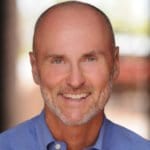
Chip is the founder of the Modern Elder Academy, where a new roadmap for midlife is offered at a beautiful oceanfront campus in Baja California Sur, Mexico. He serves on the board of Encore.org and the advisory board for the Stanford Center for Longevity.
About Kim Bohr

Kim has been a guest on Heartrepreneur, and has written for Cheapism and UpJourney.
Love the show? Subscribe, rate, review, and share!

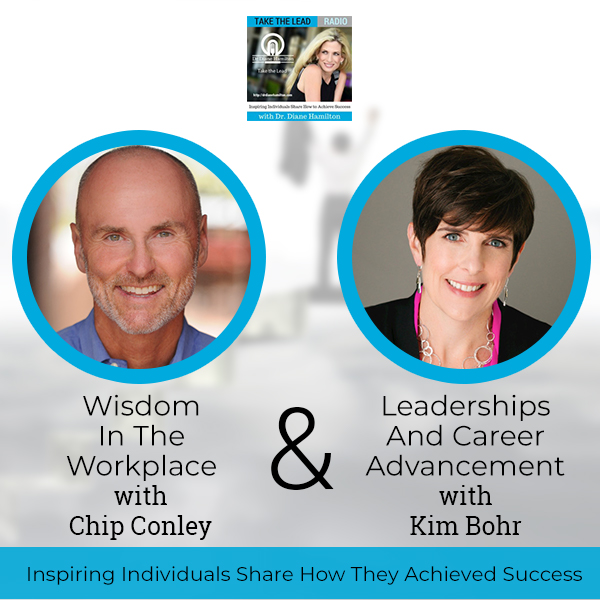
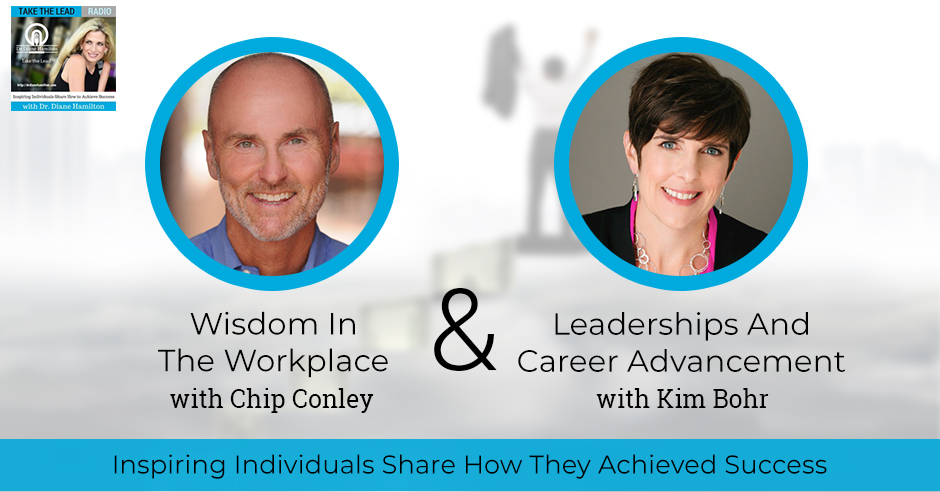

0 Comments